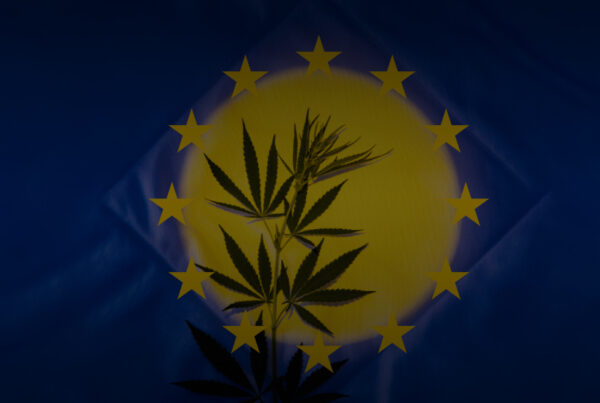Listen to the article – France Faces Fiscal Policy Shifts and Economic Uncertainty Post-Election
The Struggle for Economic Stability in France
In recent years, the French government has been struggling to manage a complex economic landscape marked by slowing growth and escalating public finance issues. Statistics reveal that the second-largest economy in the EU is grappling with high fiscal deficits and raising public debt, challenges exacerbated by the pandemic, the energy crisis and the current geopolitical shift. France’s debt is approximately 97 percent of GDP.[1] Projections indicate the fiscal deficit will remain elevated at 5.3 percent of GDP in 2024, with only a modest reduction to 4.5 percent by 2027, with a public debt expected to climb to 112 percent of GDP in 2024.[2] As recently as April 2024, the government announced USD 21.35 billion in spending cuts for 2024, aiming to reduce the public deficit to below three percent by 2027, comply with EU fiscal rules, and support ongoing green and digital transformations. In addition, the risk premium on France’s debt is nearing levels from the so-called Euro zone crisis back in 2012, with about half of the debt held by foreign investors. In fact, since mid-2022 foreign non-bank investors have been major buyers of French bonds. For instance, prior the 2017 election, Japanese investors sold USD 27.75 billion of these bonds,[3] which indicates that significant foreign ownership will likely prolong the stabilization of France’s borrowing costs.
After the June 2024 European election and Macron’s devastating results, snap elections were announced in France which created shocks to the financial markets. It also turned the investors’ focus on the potential outcome where far-right political parties are expected to be the voter favorite at the ballots, further degrading their views of the French economy, as well as the overall European economy.
In the days leading up to Macron’s election announcement, a credit-rating agency downgraded the country due to the rising cost of servicing its debt, indicating a decline in confidence. Following the announcement, a series of unfavorable events occurred as well. For instance, the euro declined for two consecutive days in respect to the USD, the CAC 40 index in Paris dropped by approximately three percent, and the yield on the ten-year government bond, an indicator of economic and political risk, surged to its highest level of the year.[4]
In order to address the worsening economic conditions, the French parliament passed a bill in June 2024 aimed at bolstering the financial capabilities of French businesses, promoting international expansion through the digitization of securities transfers, and modernizing and streamlining laws to enhance France’s economic appeal.[5]
When it comes to the EU, France is already notorious for flouting deficit rules, and the current political turmoil is likely to heighten tensions with Brussels. Following the European Commission’s announcement of its intention to initiate an excessive deficit procedure over France’s national budget, the country’s financial markets experienced further declines on 19 June 2024. This decision has intensified fears that the ongoing political reorganization may aggravate France’s economic difficulties.[6] The Brussels-mandated Excessive Deficit Procedure, aimed at enforcing fiscal discipline on member-states, will likely become even more contentious with the next administration in Paris. However, the rise of the far-right National Rally (Rassemblement National, in further text: RN), led by Marine Le Pen, threatens to further destabilize France’s political landscape and economy. The results of the first round of France’s 2024 legislative elections, reveal that RN dominates with just over 33 percent of the casted votes,[7] however it also confirmed investors’ fears about the pending political instability and market volatility in France’s election aftermath.
Against this background, the analysis aims to break down the implications to the defense, technological, agricultural and automotive sectors that are among the key drivers of France’s economy in light of the snap election, where а far-right coalition is expected to secure a majority.
01
Projected Fiscal Policy Changes
Under RN Leadership
01
Projected Fiscal Policy Changes Under RN Leadership
RN’s fiscal policy will likely focus on reducing taxes on essential goods, enhancing fiscal independence from EU financial obligations, conducting a rigorous audit of public finances, and introducing targeted exemptions to support key sectors. This likely course of action will become a stumbling stone in the French parliament, which will further be scrutinized by the European Commission.
The prospect of RN winning the second round introduces prospects that collectively aim to reshape the economic priorities towards domestic concerns. Even critics reveal that an RN victory will likely usher in considerable economic and political turbulence. It will likely disrupt parliamentary proceedings, exacerbate France’s budget deficit through extensive spending, yet also indicates that the next government will inherit the current challenging fiscal landscape, accompanied with deteriorating political stability and market volatility. RN’s economic agenda includes two costly measures: lowering VAT on electricity, fuel and gas from 20 to 5.5 percent, as well as providing a contribution exemption for a ten percent salary increase. To fund these measures, the RN President Jordan Bardella suggests closing tax loopholes, especially those benefiting shipping companies, and reducing France’s contribution to the EU budget by USD 2.13 billion, along with other financing sources.
Download Report
France Faces Fiscal Policy Shifts and Economic Uncertainty Post-Election
This analysis aims to break down the implications to the defense, technological, agricultural and automotive sectors that are among the key drivers of France’s economy in light of the snap election, where far-right coalition is expected it secure majority.
Regarding the lowering of VAT on essential goods, Bardella has delayed this action to a later phase, akin to the postponement of the pension reform repeal until the third quarter of 2024.[8] The rest of RN’s economic proposals from the presidential election would be delayed until 2026.[9]
Moreover, if RN enacts its fiscal policies, it will be impossible to comply with EU fiscal regulations. Consequently, failure to adhere to these rules will compel the European Commission to initiate the excessive deficit procedure.[10] RN’s economic program is expected to escalate the national deficit, and the proposals for reducing the retirement age are viewed as economically unrealistic and populist in nature. Even the French Business Movement noted that the upcoming elections would be decisive about the economic prospects of France.[11] Besides these economic measures, RN unsurprisingly will likely focus on the immigration issue and security matters as well.[12] In fact, RN is doubtful about the unwavering support with military aid to Ukraine, and is also against the sanctions approach against Russia, which are deemed as ineffective.[13]
Therefore, RN’s fiscal policy will likely prioritize reducing taxes on essential goods, increasing fiscal independence from EU obligations, conducting a thorough audit of public finances, and implementing targeted tax exemptions to support key sectors. This approach will likely face significant challenges in the French parliament, attract heightened scrutiny from the European Commission and sow the seeds of political instability and social discontent.
02
Impact of French Fiscal Policy
Reforms on Key Sectors
02
Implications for Defense Sector
The proposed reforms in French fiscal policy, should RN win the July 2024 election, which emphasize targeted spending cuts, structural reforms, and enhanced efficiency, will have varied impacts on the above-mentioned sectors.
Implications for Defense Sector
The French defense sector will likely experience an immediate boost due to the current geopolitical situation, with increased defense spending and a focus on national sovereignty and security, fostering a positive environment for investment. However, the announced reduction in contributions to the EU budget is expected to generate problems with other EU partners, complicating defense contracts and initiatives.
Defense spending is often shielded from the most severe cuts due to its national security implications, however it may still face pressures to improve efficiency and reduce costs. Therefore, the French defense sector is poised for significant adjustments in response to the current geopolitical climate and the pending political changes in the elections aftermath. The defense market saw a slight decline in 2023, with sales dropping by seven percent to USD 19.11 billion and export deliveries falling by 25.5 percent. In addition, the French aerospace industry, which employs 210,000 workers, plans to recruit an additional 25,000-30,000 workers this year. Moreover, the war in Ukraine has enabled France to advance its strategic goals, as reflected in the 2024-2030 Military Programming Law, which allocates USD 440.84 billion to address weaknesses revealed by the said conflict.[14]

Bearing in mind that the current French Ministry of Armed Forces is contemplating that France might shift to a wartime economy due to the ongoing Russian-Ukrainian conflict, the defense sector will likely benefit, however, the option to move to a war-time economy does not seem likely under RN-led government. Noteworthy mention is that the part of RN’s program related to defense issues was deleted recently from the party’s official website,[15] and party officials’ revelations are hinting that military aid to Ukraine is likely to continue.[16] However, Le Pen stated that sending troops to Ukraine would not be allowed should RN comes to power.[17]
This is further indicative that the next administration will likely be incentivized to potentially allow for more national budget allocation towards defense spending due to the current geopolitical situation, alongside the already transferred USD 5.48 billion for Ukraine in 2024.[18] These circumstances will likely entail increased defense spending, accelerated procurement processes, and a focus on enhancing military readiness and capabilities to address immediate security threats. Moreover, enhanced fiscal independence will likely enable France to invest more in its military capabilities, modernize equipment, and improve its defense infrastructure, particularly in the field of nuclear capabilities and AI for defense applications.
EU wise, the broader economic implications of reduced contributions to the EU budget could create tensions with EU partners, potentially affecting defense collaborations and joint initiatives within the EU framework. Initially, this would likely benefit domestic defense contractors and related industries through increased demand for military equipment and technology. However, the protectionist and isolationist tendencies of the RN could strain France’s relationships with key defense partners, potentially complicating international defense collaborations and joint ventures.
Therefore, the French defense sector will likely experience immediate boost due to the current geopolitical situation, with increased defense spending and focus on national sovereignty and security. The push for fiscal independence will likely create positive environment for investment in the short-term, yet the announced reduced contributions to EU’s budget are set to generate problems with other EU partners that would ultimately complicate defense contracts and initiatives in medium- to long-term.
Impact on the Technological Sector
RN’s proposed fiscal measures will likely foster conducive environment for innovation and growth for the French technological sector in the short-term. However, such inward approach, and the proposed stringent immigration policy will likely create labor shortages for technological companies and would also likely result in more clashes with the EU due to these protectionist measures in the long term. As a result, France could lose its technological primacy, which would further complicate operations for technological companies both within France and on the international stage.
The political instability is already having an impact on technological companies even before the snap election announcement. In the technological realm, France was among the most dynamic technological ecosystems for 2021. In 2022, it raised USD 14.41 billion, a 15 percent increase from 2021, becoming the EU leader in start-up fundraising, enabling the creation of 1.1 million direct and indirect jobs.[19]
However, recent political and economic developments are suggesting that France could lose its technological superiority. This uncertainty has not only rattled investors, yet also impacted their confidence in the French technological sector.
Furthermore, this uncertainty poses a threat to ongoing initiatives such as the national investment plan France 2030,[20] and projects like the French Tech Visa,[21] designed to expedite the hiring of non-Schengen professionals. The RN’s stance could exacerbate existing issues such as brain drain, as better opportunities abroad lure talent away, undermining efforts to establish France as a leading hub for artificial intelligence. Besides being Europe’s technological hub, France has also made a push for the green transition.
On one hand, RN’s focus on tax reduction and bolstering fiscal independence will likely foster an environment conducive to growth and innovation in the short-term. Conversely, RN’s stringent immigration policies could severely limit the influx of skilled professionals, a crucial component for sustained technological innovation. Protectionist measures might further isolate the French technological sector from vital foreign investments and collaborations, impeding its ability to keep pace with global advancements and competitive pressures. RN’s proposed public finance audits and potential budget cuts in other sectors might also reduce government grants and subsidies that technological startups often depend on for initial growth and development. Furthermore, any shift towards a more nationalistic regulatory approach resulting from decreased EU influence might lead to more restrictive technology standards and data privacy regulations.
Hence, while RN’s proposed fiscal measures are expected to foster a conducive environment for innovation and growth in the short term, their inward-focused approach and stringent immigration policy are likely to lead to labor shortages for technology companies. Additionally, these protectionist measures may result in more clashes with the EU. As a result, France is set on a path to lose its technological primacy and complicate operations for technological companies both domestically and internationally.
Fiscal Policy’s Impact on Agriculture
RN’s planned fiscal measures will likely exert pressure on the French agricultural sector. The focus on tax reduction will likely incentivize domestic production for SME agricultural businesses in the short-term. On the other hand, the sector will likely suffer from RN’s immigratory stance and the potential cuts in EU subsidies, which will further result in trade disputes and diminished export opportunities for the French agricultural sector, paving the way for French farmers to take their discontent on the streets of France.
Concerning agriculture, France is EU’s leading producer and utilizes 18 percent of Europe’s agricultural area. In 2022, French agricultural holdings generated USD 94.15 billion worth of products. The agriculture and food industry accounted for 3.8 percent of France’s GDP that year.[22] French farmers also benefit substantially from subsidies provided by the EU’s Common Agricultural Policy. Any reduction in this financial support could put pressure on the sector, especially on smaller enterprises that rely heavily on this aid. Macron’s unexpected call for a snap election has created uncertainty among French farmers and stalled progress on the new agricultural legislation.

Should RN secure an election victory, it will likely plan to push for a pause in the EU’s negotiations of new free trade agreements or to establish a “French agricultural exception” in trade talks.[23] Focusing on lowering VAT for essential goods could directly help farmers by reducing costs for inputs like fuel and energy. This measure could also temporarily support domestic producers by shielding them from global competition. Emphasizing local and regional economic growth could particularly aid small and medium-sized agricultural businesses. Such a reduction in VAT might also enhance overall farm profitability and increase competitiveness of agricultural products. However, potential cuts in EU subsidies and support, stemming from reduced contributions to the EU budget, could counteract these benefits. This situation may provoke trade disputes with the EU and other international partners, potentially resulting in retaliatory tariffs and reduced export opportunities for French agricultural goods. Moreover, RN’s proposed immigration policy will likely lead to labor shortages, also impacting agricultural productivity and efficiency. Besides, it will likely trigger social discontent for the enactment of these policies.
Therefore, RN’s proposed fiscal measures will likely place pressure on the French agricultural sector. The focus on tax reductions is anticipated to encourage domestic production among SME agricultural businesses in the short term. Conversely, the sector is expected to face challenges from RN’s immigration policies and potential cuts to EU subsidies, resulting in trade disputes, decreased export opportunities for the French agricultural sector, and trigger protests from dissatisfied groups within the society.
Fiscal Policy’s Impact on the Automotive Sector
RN’s proposed fiscal measures will initially aim to shield the French automotive industry with reduced production and transportation costs. Conversely, these fiscal policies will likely trigger retaliatory actions from partnering countries, which would likely result in reduced exports. Coupled with the industry’s reliance on global supply chains and RN’s immigration views, the automotive sector in France is set on a course of facing trade disputes, diminished export opportunities and regulatory uncertainties.
The automotive sector, which is a crucial component of the French economy with more than 440,000 employees or nine percent of the total workforce,[24] faces significant technological challenges and market disruptions in 2024. These challenges have been previously exacerbated by disruptions caused by the pandemic, including shortages in semiconductor supply and increased raw material costs,[25] which have notably affected sales and production. For example, during May 2024, the French market for new passenger cars registered its initial decline since August 2022, decreasing by 2.9 percent from May 2023, demonstrating a cautious consumer outlook.
Measures aimed at protecting French car manufacturers from international competition might initially increase their market share within France. Additionally, lowering VAT on energy and fuel could reduce production and transportation costs, potentially making vehicles more affordable and stimulating domestic sales. However, these protectionist policies might provoke retaliatory actions from other countries, thereby reducing French automotive exports. Furthermore, if the fiscal policies lead to economic instability or unfunded spending, consumer purchasing power will likely decline, resulting in decreased domestic car sales. The industry’s reliance on global supply chains also exposes it to disruptions from protectionist measures, which could increase production costs and reduce competitiveness in the long term.
Moreover, stricter immigration laws or trade tensions under an RN government will likely disrupt labor supply chains, further complicating manufacturing processes. Changes in EU environmental standards could also impact regulatory requirements for automotive manufacturers, influencing their production strategies and market dynamics.
To sum it all up, while RN’s fiscal policies present potential benefits like increased domestic market share and cost reductions, they also carry significant risks such as trade conflicts, reduced export opportunities, regulatory uncertainties, as well as protests throughout France. These factors will likely create a volatile environment for France’s automotive sector in the coming period and underscore the need for adaptive strategies and proactive measures by industry stakeholders.
03
Economic Stability in Jeopardy
03
Economic Stability in Jeopardy
France’s economic forecast indicates modest growth and a gradual reduction in inflation over the next two years. While private consumption is set to drive growth, investment is expected to remain weak initially. Public finances are constrained by high deficits and rising debt levels, with significant interest payments on public debt. The labor market is stabilizing, with slight increases in unemployment expected as the active population grows. These dynamics present a mixed economic outlook, with slow recovery tempered by fiscal and labor market challenges.
However, the outcome of the French elections holds profound implications for the country’s fiscal policy and economic stability, especially in the aftermath of potential reforms under different political scenarios, which are even more certain after the first round of the elections. The prospect of a fragmented political landscape, with no clear majority emerging, raises concerns about the feasibility of implementing significant fiscal reforms. In addition, the fact that there are calls for boycott of the far-right and brewing discontent within the French society, the prospect of RN government taking the helm in the National Assembly, would likely trigger demonstrations and protests from the opposing camps in the period to come.
Disregarding whether the left or far-right were to gain power, their ability to enact substantial policy changes could be severely hindered by political instability and resistance within the National Assembly. Having in mind RN’s program as well as their past legislative work, it would not come as a surprise if the measures ultimately enacted were completely contrary to what is written in their program. The suggestion of technocratic leadership, while a possibility, faces challenges in garnering political legitimacy necessary for effective governance and reform implementation. This echoes past experiences in Italy, where similar measures struggled amidst economic uncertainty.
Disregarding whether the left or far-right were to gain power, their ability to enact substantial policy changes could be severely hindered by political instability and resistance within the National Assembly. Having in mind RN’s program as well as their past legislative work, it would not come as a surprise if the measures ultimately enacted were completely contrary to what is written in their program. The suggestion of technocratic leadership, while a possibility, faces challenges in garnering political legitimacy necessary for effective governance and reform implementation. This echoes past experiences in Italy, where similar measures struggled amidst economic uncertainty.
Moreover, if a coalition between RN and the Republicans were to secure parliamentary majority, it would mark a significant shift in the French political landscape. Despite Republicans’ traditional alignment with market-friendly policies, the integration with RN’s more radical agenda could foster apprehension among investors. Markets would likely react with caution, since RN’s policies have included significant deviations from established economic and financial norms, creating a sense of unpredictability and uncertainty for investors. Therefore, market reactions are expected to play a decisive role in shaping the course of future fiscal policies. The RN’s agenda, for instance, will likely clash with EU regulations, potentially exacerbating economic tensions and market volatility. Such uncertainties could further undermine investor confidence and stall economic recovery efforts, particularly if deficit concerns and policy execution challenges persist.
In conclusion, regardless of the electoral outcome, navigating France’s fiscal future will demand adept leadership capable of balancing domestic policy ambitions with international economic realities. The impact on key sectors will hinge significantly on the ability of the new government to foster stability, mitigate risks, and sustain investor trust during evolving geopolitical dynamics.

ARTICLE | 21 PAGES




